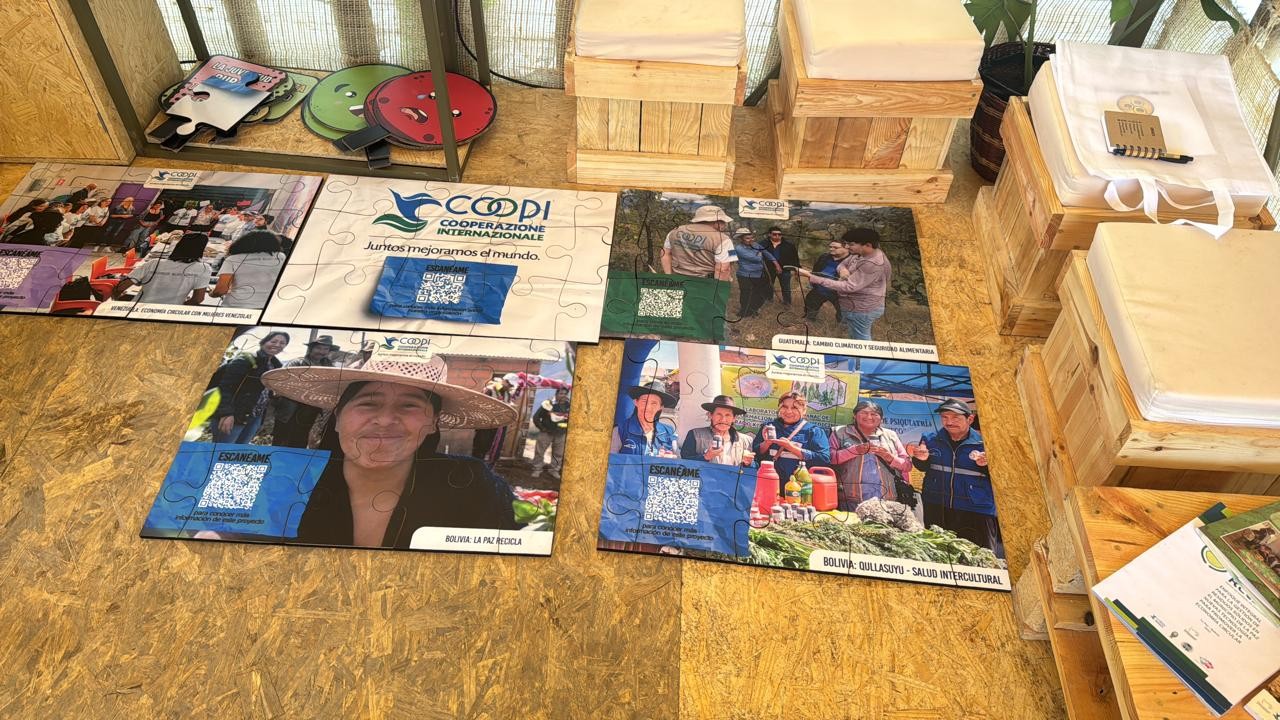31-10-2024 | di COOPI
COOPI at COP16 in Colombia: sharing experiences and good practices for a sustainable and inclusive future
COOPI-Cooperazione Internazionale attended COP16, the United Nations Conference on Biodiversity, which is taking place in Cali, Colombia, from 21 October to 1 November 2024.
The event has been called ‘the people's COP’, referring to it as a space where people become protagonists and a source of inspiration to make progress in biodiversity protection and ensure the survival of more than one million species worldwide.
COP16 is divided into two main areas: the Blue Zone and the Green Zone. The Blue Zone is the heart of the conference, where participating countries establish their positions and seek to reach decisive agreements for the protection of global biodiversity. The Green Zone, on the other hand, serves as a space for the participation of civil society, non-governmental organisations, the private sector and all those interested in biodiversity conservation. Here, conferences, discussion panels, workshops, exhibitions of environmental projects and art presentations take place, creating an environment open to the public where knowledge is exchanged and inspiration for concrete action is fostered.
Our participation was concentrated on 28 and 29 October, when COOPI was present in the Green Zone, hosted by the stand of AICS - Italian Agency for Development Cooperation.
On the 28th of October, the stand was visited by Giancarlo Maria Curcio, Italian Ambassador to Colombia, and Claudio Barbaro, Undersecretary of State at the Ministry of the Environment and Energy Security, who attended the conference in Cali.
Sustainability and social justice in Latin America: the four projects presented by COOPI
During the event, COOPI presented four projects addressing environmental challenges in Guatemala, Bolivia and Venezuela. These projects aim to promote food security, foster a circular economy and guarantee the right to health for vulnerable communities.

In Guatemala, the ‘Climate Change and Food Security’ project aims to sustainably develop the Mancomunadas areas by implementing rainwater harvesting techniques to ensure food security in some municipalities in the regions of Huehuetenango, Quiché and San Marcos.
In Bolivia, the ‘La Paz Recicla’ project focused on improving waste collection systems and promoting the circular economy by involving vulnerable communities in the implementation of recycling and material reuse technologies in the metropolitan area of La Paz.
Another project in Bolivia, called ‘Qullasuyu’, is dedicated to defending the right to intercultural health, integrating traditional and academic medicine to ensure access to health services for over 5,000 people in the indigenous communities of Chuquisaca and Potosí.
Finally, in Venezuela, the project ‘Circular Economy with Venezuelan Women’ promotes the participatory management of urban waste thanks to the Tramuco Cooperative, set up by women and victims of gender-based violence, generating alternative livelihoods to tackle the socio-economic crisis.
COOPI's participation in COP16 was a key opportunity to share experiences and good practices in biodiversity management, demonstrating the importance of an integrated approach combining environmental sustainability and human rights.




 Colombia
Colombia
